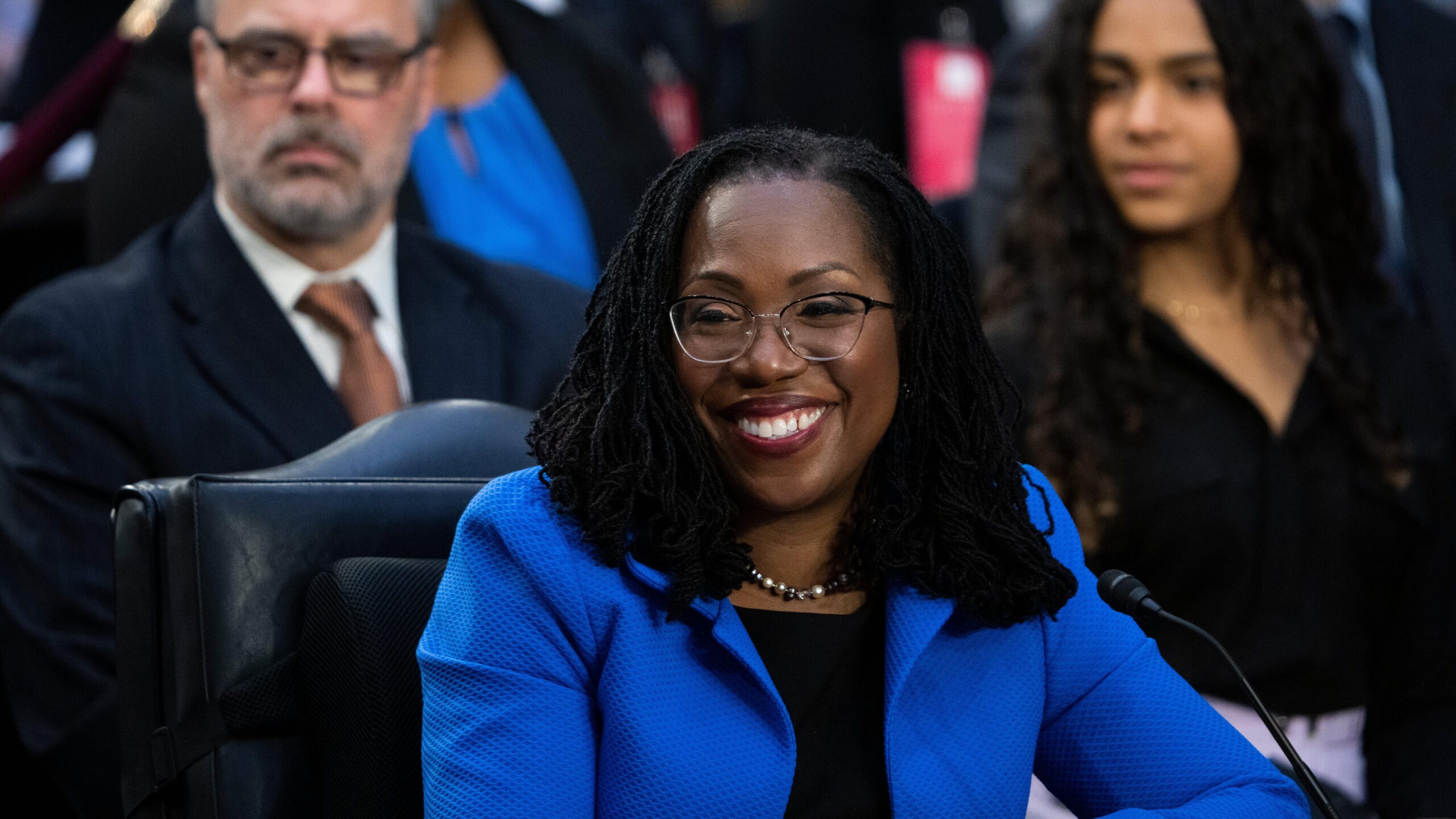On the first day of Senate confirmation hearings for Judge Ketanji Brown Jackson, the accomplished public servant took a moment to explain—among many things, ultimately—the meaning behind her name. Given to her by her parents John and Ellery Brown, and picked from a list sent by her aunt who was volunteering at the Peace Corps in West Africa at the time, Ketanji Onyika—her first and middle name—translates to mean “lovely one.”
As a self-proclaimed “child of the 70s,” I have no doubt that Jackson’s parents were very, very intentional when they chose that name. Most Black parents have to be. Thanks to numerous studies over the years that show how Black applicants are often discriminated against solely based off their names when it comes to potential hirings, I’m pretty confident that there were some serious discussions had at the onset about how Judge Jackson’s name would be received and perceived throughout the course of her life. This leads me to my latest grievance: the frequent mispronunciations of Judge Ketanji Brown Jackson’s first name.
Suggested Reading
I don’t know who needs to hear this, but her name is Ketanji Brown Jackson. Pronounced phonetically, it’s “kee-Ton-jee” Brown Jackson. It’s not Ke-tonya. Ke-tonja. Key-tony. Kateen. Ke-Tenja. Kedonji. Kenjonji. Kentowni. Katoni. Kajonti. Ketownie. Kentonji. Kentahji. Kontainja or Kontanja.
It’s Ketanji. And as a matter of fact, I take back what I said earlier. I know exactly who needs to hear this: all these racist folks who seem to find pleasure in deliberately mispronouncing Judge Jackson’s name. As well as those who can’t seem to find the time to figure out how to say it or spell it correctly but can flawlessly say and spell “Buttigieg,” “Tchaikovsky,” and “supercalifragilisticexpialidocious” three times fast. Whatever your reasons, they’re not reason enough.
You see, whether folks care to admit it or not, the frequent butcherings of Judge Ketanji Brown Jackson’s name are a stark reminder of the ways in which Black women’s identity and autonomy are often disregarded. For many Black folks—and Black women in particular—our first and middle names are a source of self-identity, personal independence, and oftentimes, our only ties to our familial history and legacy. (A history and legacy that’s currently under the threat of getting erased from our education system but that’s another piece for another day). It’s a plight that has both racial and gender-fueled nuances, and one that, for me personally, is something I’ve dealt with ever since I was a child.
Although my name is spelled “Shanelle” and pronounced like the well-known luxury brand “Chanel,” I often defer to the latter simply because I’ve grown weary of spelling out my name only to find it still somehow messed up at the drive through, in restaurants, at hotel front desks, in Starbucks, in a classroom, you name it. I’ve been renamed to Michelle, Shantelle, Sharelle, Nashell, Shantrell, Chanelle, Chantel, Shannel, Chenelle, Chenal, and everything in between. Sometimes I correct them, other times I don’t. Why? Again, because I’m tired and part of me has just accepted that people aren’t going to do right—deliberately or otherwise—so why even use all that energy in the first place?
But you know what? I’m wrong for thinking that. I’m wrong for making concessions on behalf of ignorant folks. They don’t deserve that. And I’m wrong for not taking the time out to correct them when I should have. Because the truth of the matter is, even if people won’t do right, it’s up TO ME to ensure that they do. If I don’t look out for me, even on the smallest level, who else will? If I don’t command respect and demand the acknowledgement of my humanity through something as simple as getting my name right, what personal precedent am I setting? What internal boundaries am I overriding? What overarching societal green flags am I giving?
Malcolm X once said: “The most disrespected person in America is the Black woman. The most unprotected person in America is the Black woman. The most neglected person—”
Well, you know the rest.
Or at the very least, you should.
It’s a series of phrases that have become more and more prominent over the years thanks (and no thanks, to be honest) to today’s climate that has seen an alarming amount of Black women and men shot and killed by police and racist vigilantes. At it’s core, however, the underlying message is clear: Black women need and deserve to be respected, protected, and cared for and about by society. And an easy way to begin that process is by learning how to correctly pronounce and spell our names. One letter, one syllable, at a time.
Like acclaimed author and essayist Toni Morrison once declared: “When you know your name, you should hang on to it, for unless it is noted down and remembered, it will die when you do.” So, for those in the back, allow me to once again note her name: it’s KETANJI BROWN JACKSON. K-E-T-A-N-J-I.
Remember that name, familiarize yourself with that name. And for the love of all that is Black and holy, put some respect on her name.
Straight From 
Sign up for our free daily newsletter.


